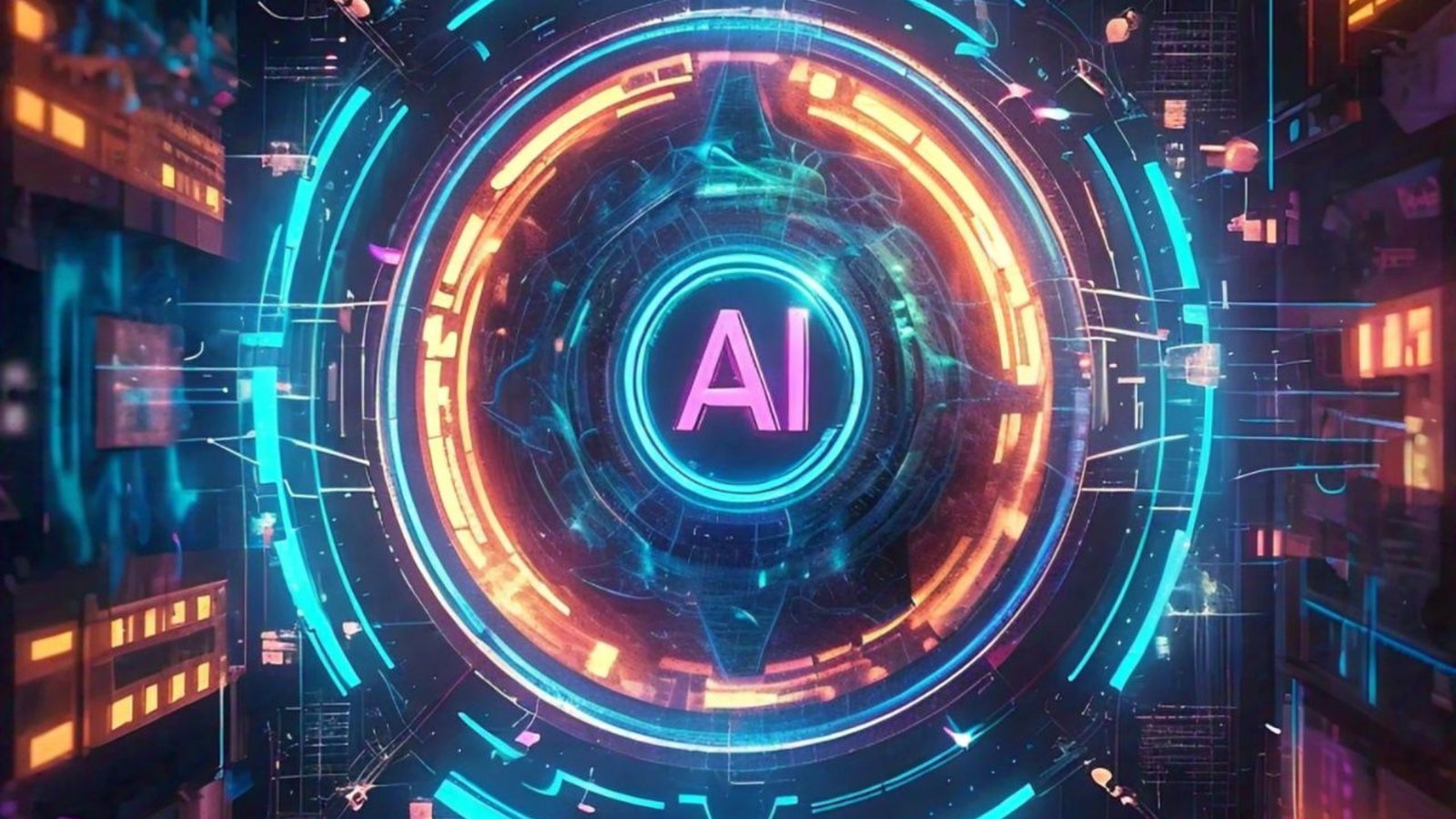Explore the transformative role of AI in the Metaverse. This detailed analysis covers AI’s influence on virtual experiences, security, NPCs, and the digital economy within immersive virtual worlds. The Metaverse, which creates networked virtual worlds where users may socialize, work, play, and do business, is quickly becoming the next big thing in digital engagement. Artificial Intelligence (AI), which improves everything from user experience and personalization to security and digital commerce, is essential to developing these immersive environments. This article thoroughly examines AI’s function in the Metaverse, including its uses, difficulties, and prospects.
The combination of persistent virtual worlds and digitally improved physical reality has produced a collective virtual shared environment known as the Metaverse. Users can communicate with avatars, explore virtual locations, participate in events, and conduct social or business operations in these interconnected worlds. The Metaverse is intended to be an interoperable, decentralized universe that blends blockchain, virtual reality, and augmented reality (AR) in contrast to isolated virtual environments. Despite its enormous popularity, the MMetaverse’s full potential has not yet been realized. AI is essential to turning the Metaverse from an abstract idea into a fully working, intelligent, entertaining, and personalized world.
The Role of AI in the Metaverse
Artificial intelligence covers a broad technology spectrum, from computer vision and robotics to machine learning and natural language processing (NLP). AI helps with various tasks when it is included in the Metaverse, improving virtual space production and user engagement. Some of AI’s main contributions to the Metaverse are listed below:
Personalized User Experiences
Personalized user experiences are among the most critical ways AI improves the Metaverse. AI systems can provide customized information, settings, and interactions that suit each person’s requirements and interests by evaluating data from user interactions, preferences, and behaviors. AI can build dynamic and changing virtual environments because it can learn from user data. For instance, it is based on a user’s past interactions and activities within the Metaverse. AI can suggest virtual goods, events, or friends in virtual marketplaces or social spaces. To make the experience more immersive and captivating, personalization is not just found in commercial products. It also permeates the architecture of virtual worlds.
AI-Powered NPCs

Non-playable characters, or NPCs, are crucial to the Metaverse because they enhance the virtual world and offer deep interactions. NPCs have historically been programmed to follow preset scripts. But AI enables more sophisticated and dynamic behavior from these characters. AI-driven NPCs can comprehend and react to human activities conversationally using machine learning and natural language processing. These NPCs can recall specifics about the user. Learn from previous interactions and modify their replies over time. In a role-playing game (RPG), for instance, NPCs may be able to identify a preferred method of play or decision-making and modify their actions accordingly to produce more engaging, meaningful experiences. Furthermore, by offering support and guidance in a natural, intuitive way, these NPCs could aid beginning users in navigating virtual environments.
Intelligent Virtual Assistants
AI-driven virtual assistants are now a standard part of many Metaverse platforms. These assistants aid users with technical support, event management, and virtual world navigation. But these helpers are getting more advanced as the Metaverse develops. With the help of sophisticated AI, virtual assistants in the Metaverse can serve as individualized tour guides. Depending on user preferences, they recommend activities, social events, and get-togethers. They can also ease transactions and assist users in interacting with virtual assets through constant learning from user interactions. These assistants become more accurate and valuable over time, contributing significantly to the Metaverse’s continued accessibility and usability.
Enhanced Virtual Interactions
Social connection is essential in a fully developed Metaverse, and AI significantly improves virtual interactions. Artificial intelligence (AI) systems allow users to have more meaningful and realistic discussions in virtual environments by utilizing natural language processing (NLP) and emotion recognition. NLP enables users of multiple languages to communicate fluently and in real-time.
AI can also interpret body language, facial expressions, and speech tones through VR technology to determine emotional states and modify discussions accordingly. This enhances the Metaverse’s social experience by producing realistic settings and avatars. For example, AI can help avatars identify and react to emotions. It enables them to celebrate successes when a user achieves them or provide consoling words if they appear frustrated. This type of emotional intelligence is a big step toward making virtual interactions more human-like.
World-building and Content Creation
It takes a tremendous amount of work and imagination to create expansive, dynamic virtual environments. AI helps developers create environments and content, speeding up world-building. Generative design algorithms can create items, structures, and landscapes autonomously based on specific parameters.
AI might, for instance, produce a game world that changes according to player choices or a procedurally constructed city that adjusts to the behavior of its residents. Users can personalize their virtual worlds by using machine-learning techniques to generate virtual items like clothes, avatars, and furniture. The Metaverse is kept dynamic and constantly changing to satisfy its demands because of its users’ demands because of material.
AI in the Virtual Economy
The Metaverse is evolving as a center for online trade, allowing users to purchase, sell, and exchange virtual products and services. Artificial intelligence (AI) significantly contributes to the development of the virtual economy by forecasting market trends, providing tailored suggestions, and handling transactions. To provide individualized purchasing experiences, AI-powered systems examine transaction history, preferences, and behavioral trends.
By predicting what goods or virtual goods a user is likely to be interested in. These technologies enhance the Metaverse’s shopping experience and stimulate its economy. AI can also help with price analysis, managing digital assets like NFTs (non-fungible tokens), and creating virtual currencies by detecting fraudulent transactions and verifying the authenticity of digital goods. It aids in the regulation of the online marketplace.
Security and Privacy in the AI-Driven Metaverse
With the expansion of the Metaverse, the protection of user data and the security of virtual assets have become a primary concern. AI plays a crucial role in cybersecurity, helping to detect and prevent malicious activities, such as fraud, hacking, and harassment. AI can monitor user interactions in real-time to detect unusual behavior or potential security threats.
Machine learning algorithms can flag suspicious activities like account theft or identity manipulation, preventing malicious users from exploiting the Metaverse. AI systems also work to protect user privacy by ensuring that data is securely stored and encrypted and only accessible by authorized individuals. Furthermore, AI can help build a safer and more inclusive Metaverse by moderating content and enforcing community guidelines. This includes identifying hate speech, harassment, or inappropriate behavior and taking immediate action to safeguard users.
Challenges of AI in the Metaverse
Despite AI’s incredible potential in the Metaverse, several challenges must be addressed to realize its full potential.
- Ethical Considerations: As AI is incorporated into virtual environments, moral questions about AI decision-making and data privacy are becoming increasingly prevalent. AI systems must be open and equitable to prevent biases and treat user data appropriately.
- Technical Limitations: AI technology is still in its infancy, and its processing capacity and algorithmic complexity are limited. AI-powered NPCs and avatars, for instance, can exhibit strange behavior or fail to engage users in ways that seem entirely realistic.
- Digital Divide: Users without access to high-end technology, such as VR headsets, AR gadgets, and powerful PCs, may be unable to participate in the Metaverse. Developers must ensure that a wide variety of users can continue accessing the Metaverse.
The Future of AI in the Metaverse
AI, the Metaverse’s future, is anticipated to be more intelligent and immersive. AI will power individualized interactions, self-governing world-building, and emotionally intelligent avatars. As AI technology advances, virtual environments will grow more dynamic and flexible, providing users with individualized experiences. Additionally, improved AI skills will boost digital economies, increase security, and promote deeper social connections in virtual environments.
Also Read: Who Technology Management: Details on Its Role and Importance
Final Thoughts
AI is a fundamental technology influencing the Metaverse and is not only an improvement. AI is essential to making the Metaverse a vibrant, engaging, and safe environment, from developing intelligent NPCs and individualized user experiences to promoting virtual commerce and maintaining security. Even if there are still issues like moral dilemmas and technological constraints.
The Metaverse’s AI future promises a more sophisticated, customized, and engaging virtual environment. Our lives, jobs, and interactions will continue to change due to the combination of AI and the Metaverse, which will make. The digital world is more human-like and limitless in its possibilities.










